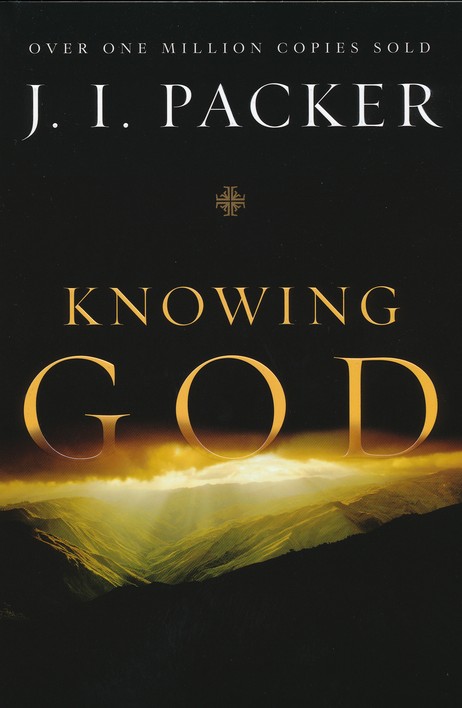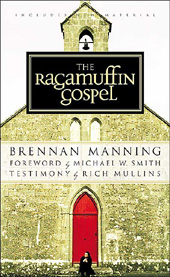
Several weeks ago I left you with the second installment of my review of J.I. Packer’s Knowing God, one of the works that made it onto ESN’s March Madness bracket, The Best Christian Books of All Time. As I said then, this book has greatly impacted the way I see and live in the present world. I’m far from being able to say that I’ve got this life under wraps (and I hope I never think I do), but Packer’s words have led me to question and wrestle with many “wrapped” beliefs that I would’ve probably left inside that worn, crinkly paper of assumption and expectation.
Today I’m going to work through a few of the several remaining Chapters of Parts II and III, pausing only when I think the main point of the Chapter might bring up some questions for us —we who are so easily ensnared by the worrying pursuit of academic success (if you’re anything like me).
Wrath and Judgment
Chapters 14-17 of Part II and the whole of Part III, Chapters 18-22, have as their foundation the biblical concept of propitiation, which is centered upon the age-old problem of the just and loving God of Christianity. Packer confronts God’s righteous anger and his judgment head-on.
Today we prefer to name anger “frustration.” (Surely it isn’t as bad —or should I say, sinful —to be frustrated as it is to be angry at the person who gets your order wrong at the drive-through.) And judgment? Far be it from us! More than that, we tend to put God into our categories. We’d rather have a God who, after a short period of frustration, smiles and forgets all about the ugly stuff. An “angry” God doesn’t sound like one I’d want my family worshiping. But in Knowing God Packer ushers us into a confrontation with the pervasive biblical theme of anger and judgment as inextricably linked to the character of our God. The anger of the God of the Bible is not like ours. Because it’s perfect. So is his judgment. Packer points out dozens of scripture references related to both God’s anger as his righteous response to injustice and unrighteousness AND to his judgment upon those who practice sin —actions in rebellion to God —without remorse.

I’ll let you read the book, but let it be said by way of introduction that, for Packer, the good news is this: our Judge is stainless in his holiness, perfect in his justice, and infinitely abounding in his goodness. We can therefore trust him in his dealings with his creation, including in his wrath and anger. Furthermore, as Packer points out, we know that “there is now no condemnation for those who are in Christ Jesus” (Romans 8:1).
But how is this possible?
Part III: Propitiation
Packer moves seamlessly from a discussion of judgment and anger to one of propitiation. Propitiation is a fancy word used to deliver the message that an entirely holy, all powerful God can hang out in intimacy with people who, having rejected his help, are anything but holy and powerful. In Chapter 18 Packer quotes John Murray’s The Atonement:
The doctrine of the propitiation is precisely this: that God loved the objects of His wrath so much that He gave His own Son to the end that He by His blood should make provision for the removal of this wrath’ (185).
A common misunderstanding at this point claims that Jesus died to “change the mind of his unkind Father” (185). But this, Packer claims, is a gross, polytheistic, misunderstanding of the gospel. On the contrary, God chose, because of his love for his creation, to quench his justly dealt wrath in a willing Jesus for the sake of those whom he loves.
Packer points out that in some translations of the New Testament “expiation” takes the place of propitiation. Packer argues that expiation, which “denotes the covering, putting away or rubbing out of sin so that it no longer constitutes a barrier to friendly fellowship between man and God” (182), is too weak. For expiation does not, as propitiation does, begin from recognizing the pacification of the wrath of God on the cross, a motif on display too often in the biblical story to be avoided (see especially Romans 1-3). Packer takes this argument all the way to a claim that all of the various understandings of what happened between us and God on Good–so very Good–Friday can be traced back to propitiation.
’When you are on top of the truth of propitiation, you can see the entire Bible in perspective, and you are in a position to take the measure of vital matters which cannot be properly grasped in any other terms (191).

So if knowing God is the desired pursuit of the Christian life, then propitiation is the fact that makes it all possible. Although in Knowing God Packer discusses many other truths of our faith, he begins and ends with knowing God and propitiation. I hope this brief study has opened up some questions for you, as it has for me. I disagree with Packer from time to time, and so will you. That’s completely okay. Even Peter and Paul went through that. What is most important, as we saw argued for in the first several Chapters, is that you come away with a deeper knowledge of the true God. For indeed, as Brennan Manning put it so eloquently in The Ragamuffin Gospel,
The Word we study has to be the Word we pray. My personal experience of the relentless tenderness of God came not from exegetes, theologians, and spiritual writers, but from sitting still in the presence of the living Word and beseeching Him to help me understand with my head and heart His written Word. Sheer scholarship alone cannot reveal to us the gospel of grace. We must never allow the authority of books, institutions, or leaders to replace the authority of knowing Jesus Christ personally and directly.
Let all this be said for your encouragement and to the glory of God!
My wife and I live in South Hamilton, MA where I’m pursuing an MDiv at Gordon Conwell Theological Seminary and she’s serving as Intervarsity staff on campus at Northeastern University. I study Theology and History and Philosophy “as ends in themselves” (in the Aristotelian sense), as well as for a further, more complete end: a deeper understanding of my King and, thus, a more dynamic relationship with him.
I graduated this past spring (2013) with BA in Religious Studies (Hinduism and Buddhism concentration) and a minor in Classical Greek (Homeric/Ionic/Attic/Doric/Koine, appx. 8th BCE – 5th CE). The study of the ancient world in its original context and language fascinates me, especially that of the Early Christians, Ancient Jews and Hellenes.
For more of my writing, see my blog @ www.philotheology.com

Leave a Reply